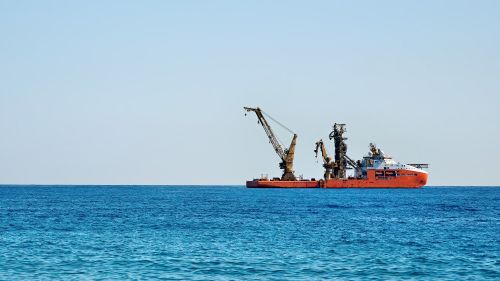U.S. at a Crossroads: Kerry Urges Renewable Investment to Counter China’s Energy Dominance


Cut through the green tape
We don't push agendas. At Net Zero Compare, we cut through the hype and fear to deliver the straightforward facts you need for making informed decisions on green products and services. Whether motivated by compliance, customer demands, or a real passion for the environment, you’re welcome here. We provide reliable information—why you seek it is not our concern.
Former U.S. climate envoy and Secretary of State John Kerry issued a clear warning on March 12, 2025, stating that if the United States retreats from renewable energy development, it risks surrendering global leadership in infrastructure and manufacturing to China.
Speaking at The Economist’s Energy Transition Summit in London, Kerry emphasized that pulling back from clean energy investments—particularly through attempts to roll back the Inflation Reduction Act—would create a vacuum China is poised to fill.
“There’s a big marketplace out there, and America needs to compete,” Kerry told The Wall Street Journal. “America needs to be in the hunt for those technologies, and I think the president’s goal of being first in class means that these renewable technologies require that we continue to be researching, building, and deploying.”
Kerry emphasized that the global energy market is the largest in the world, and renewable energy is a major slice of it. He said that if the U.S. scales back clean energy incentives, China would be in a position to dominate the manufacturing of solar panels, wind turbines, and other clean-energy technologies.
“Even on the emotional scale, if you want to beat China, you better be doing this,” he said. “You need to be producing better products that are going to be in demand around the world. It’s something that I don't think we should just give up.”
A Market Too Big to Ignore
Kerry underscored that the energy transition is not just about emissions—it’s also an industrial and economic race. Despite political turbulence, he remains confident that market forces will continue driving decarbonization forward.
“The market globally has made its decision to move to a low-carbon, no-carbon economy. Politics is not going to change that commitment,” he said.
He noted that major corporations have already made firm commitments to net-zero goals by 2050 and are actively addressing Scope 1, Scope 2, and Scope 3 emissions.
Texas as a Case Study
Kerry pointed to Texas—governed by Republicans and traditionally fossil-fuel dependent—as a strong example of renewable energy’s growing relevance.
“Texas is the largest deployer of wind in America and depends on the wind to balance its power delivery and get through its winters. I don't think the Republican governor there is going to suddenly dismantle or stop doing what his plan is.”
Climate Investment Delivers Strong Financial Returns
Kerry, now Co-Executive Chair at Galvanize Climate Solutions, emphasized that climate investments are not just environmentally sound—they’re profitable.
“There are a lot of companies making a pretty healthy return on investment. You’re looking at double-digit returns,” he said. “And that’s powerful as more people become aware of the size of this market and the scope of opportunity. I think things are going to start to move faster.”
Galvanize, co-led by Tom Steyer and investor Katie Hall, focuses on financing decarbonization across sectors.
Global Leadership Requires Private Sector Momentum
Kerry praised the recent rise of Mark Carney, former Bank of England governor, who is set to lead Canada’s Liberal Party and assume the role of Prime Minister. He credited Carney’s efforts to mobilize private capital for climate initiatives.
“Mark is focused on the same kind of thing that I’m focused on—how do you excite the capital so that it begins to gravitate toward these kinds of investments that make the difference? He’s practical, wants the private sector to act, and knows how to get things done.”
COP Without U.S. Leadership: A Difficult Path
As President Biden’s chief climate negotiator, Kerry played a central role in rejoining the Paris Agreement and strengthening U.S. commitments during COP summits. But with Trump once again pulling out of the Paris Agreement, Kerry fears global momentum may slow without U.S. leadership.
“That’s where there is a real deficit to what is going on right now, sadly,” he said.
Reflecting on COP28 in Dubai, where countries agreed to transition away from fossil fuels, Kerry believes that may represent a high point in global climate cooperation—at least for the near term.
“I think Dubai may be about as good as it can get. The basic thrust of the policy—net zero by 2050 and accelerating the transition away from fossil fuels—is a really big, important mission statement.”
Developed Nations Must Lead the Way
Kerry closed with a sobering reminder: a small number of countries are responsible for the vast majority of emissions, and those nations must lead implementation efforts.
“There are about 23 countries that account for more than 80% of all emissions. They are the ones that have to make the fundamental moves. Island states, African countries, and less developed nations like Bangladesh can’t do it alone. The developed world must step up.”

More related content

Norway Launches World’s First Full-Scale Carbon Capture and Storage...

Arup and Autodesk Join Forces to Accelerate Decarbonization in Cons...

ASHRAE and ICC Launch Second Public Review for Standard 240P on Lif...
